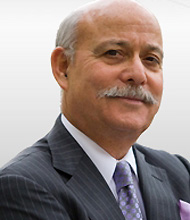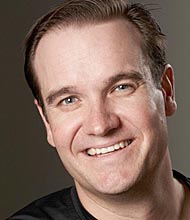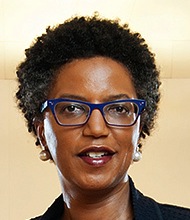| TRAVELS FROM |
|
SPEAKING FEE RANGE ** Please note that while this speaker’s specific speaking fee falls within the range posted above (for Continental U.S. based events), fees are subject to change. For current fee information or international event fees (which are generally 50-75% more than U.S based event fees), please contact us. $30,000 to $50,000 |
|
BOOK JEREMY RIFKIN speakers@coreagency.com |
| TRAVELS FROM |
|
SPEAKING FEE RANGE* $30,000 to $50,000 |
|
Book Jeremy Rifkin speakers@coreagency.com |
- Advisor to the European Commission, the European Parliament, and several EU and Asian heads of state.
- Principle architect of the European Union’s Third Industrial Revolution long-term economic sustainability plan.
- Author of the New York Times bestseller The Third Industrial Revolution.
- President of the TIR Consulting Group LLC and The Foundation on Economic Trends.
Jeremy Rifkin is one of the world’s foremost authorities on the impact of scientific and technological changes on the economy, society and environment. In 2011, Rifkin published the New York Times bestseller The Third Industrial Revolution, which captured the attention of the world. He is also the bestselling author of 18 other books including, The Empathic Civilization, The Age of Access, and The Hydrogen Economy.
Rifkin’s vision of a sustainable, post carbon economic era has been endorsed by the European Union and the United Nations. He has been an advisor to the European Union for the past decade and has advised world leaders including Chancellor Angela Merkel of Germany, Prime Minister Jose Socrates of Portugal, and Prime Minister Janez Janša of Slovenia during their European Council Presidencies.
Rifkin is also the President of the TIR Consulting Group LLC which is comprised of many of the leading companies in society’s most important fields such as renewable energy, architecture and IT. His global economic development team is working with governments and global corporations on the latest cutting-edge technologies and practices designed to address the twin challenges of climate change and energy security, developing the Internet of Things (IoT) infrastructure for a Collaborative Commons, and a Third Industrial Revolution.
Jeremy Rifkin lectures on a wide range of subjects concerning the mega-trends of globalization, particularly his vision of the Third Industrial Revolution. Now that the era of plentiful and cheap oil is over, a new economic strategy is necessary for a society that has until now, relied on fossil fuels. In this powerful presentation, Rifkin presents a visionary plan for economic recovery based on the rebuilding of energy infrastructure.
Based on his program that has now been adopted across the European Union, Rifkin outlines his vision of a green energy area based around a hydrogen economy. By advocating a shift to renewable energy and other technological advances like pioneering power plants, hydrogen fuel cell technology, and the distributive capabilities of the internet, cities and nations can transition into a sustainable future. Reconfiguring the entire economic infrastructure of each country will create millions of jobs and countless new goods and services.
Taking a holistic view of energy developments and the ways in which the global environmental crisis can be combated, Rifkin looks into every aspect of technology, the workplace, globalization and education to explain what sort of world we could inhabit in the future.
Mega Trends in Globalization Lecture Topics:
- The Third Industrial Revolution: Leading the way to a green energy era and a hydrogen economy
- The Global Environmental Crisis: The path to sustainable development
- The European Dream: How Europe′s vision of the future is changing the global economy
- The Age of Access: Understanding the historic shift in economic models, from traditional capitalist markets to emerging global commercial networks
- The Future of Work: Rethinking the nature of employment in an increasingly automated, borderless and highly mobile global economy
- The Hi-tech Revolutions of the 21st Century: Harnessing the scientific and technological fields of biotechnology, nanotechnology, advanced IT, and cognitive science in ways that advance the process of globalization
- Rethinking the Global Health Paradigm: Making the shift from managing disease to promoting wellness
- Living in a Three Sector World: Building new partnerships between the global business community, civil society, and governments to create a sustainable approach to globalization
- Deep Globalization: Deepening and expanding the global economy by bringing the remaining 60% of the human race into the 21st century marketplace
- Educating Youth for a Global Era: Introducing service learning and experiential education into schools and colleges to prepare youth for working and living in a diverse, multicultural world
- Immigration in a Globally Connected World: Addressing the challenges of migration in an era of cultural diasporas
- Beyond the Nation State: Examining the future prospects of transnational political spaces in Europe, Asia, the Americas, and Africa
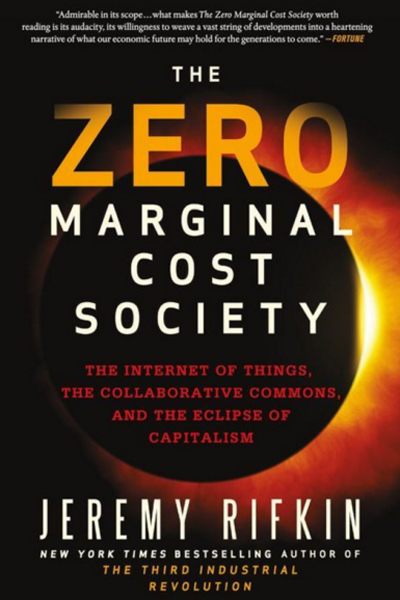
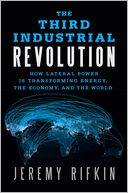 The The Third Industrial Revolution: How Lateral Power Is Transforming Energy, the Economy, and the World
The The Third Industrial Revolution: How Lateral Power Is Transforming Energy, the Economy, and the World
The Industrial Revolution, powered by oil and other fossil fuels, is spiraling into a dangerous endgame. The price of gas and food are climbing, unemployment remains high, the housing market has tanked, consumer and government debt is soaring, and the recovery is slowing. Facing the prospect of a second collapse of the global economy, humanity is desperate for a sustainable economic game plan to take us into the future.
Here, Jeremy Rifkin explores how Internet technology and renewable energy are merging to create a powerful “Third Industrial Revolution.” He asks us to imagine hundreds of millions of people producing their own green energy in their homes, offices, and factories, and sharing it with each other in an “energy internet,” just like we now create and share information online.
Rifkin describes how the five-pillars of the Third Industrial Revolution will create thousands of businesses, millions of jobs, and usher in a fundamental reordering of human relationships, from hierarchical to lateral power, that will impact the way we conduct commerce, govern society, educate our children, and engage in civic life.
Rifkin’s vision is already gaining traction in the international community. The European Union Parliament has issued a formal declaration calling for its implementation, and other nations in Asia, Africa, and the Americas, are quickly preparing their own initiatives for transitioning into the new economic paradigm.
The Third Industrial Revolution is an insider’s account of the next great economic era, including a look into the personalities and players — heads of state, global CEOs, social entrepreneurs, and NGOs — who are pioneering its implementation around the world.
Order Here
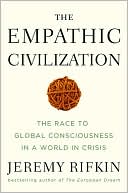 The Empathic Civilization: The Race to Global Consciousness in a World in Crisis
The Empathic Civilization: The Race to Global Consciousness in a World in Crisis
"One of the leading big-picture thinkers of our day" (Utne Reader) delivers his boldest work in this erudite, tough-minded, and far-reaching manifesto.
Never has the world seemed so completely united-in the form of communication, commerce, and culture-and so savagely torn apart-in the form of war, financial meltdown, global warming, and even the migration of diseases.
No matter how much we put our minds to the task of meeting the challenges of a rapidly globalizing world, the human race seems to continually come up short, unable to muster the collective mental resources to truly "think globally and act locally." In his most ambitious book to date, bestselling social critic Jeremy Rifkin shows that this disconnect between our vision for the world and our ability to realize that vision lies in the current state of human consciousness. The very way our brains are structured disposes us to a way of feeling, thinking, and acting in the world that is no longer entirely relevant to the new environments we have created for ourselves.
The human-made environment is rapidly morphing into a global space, yet our existing modes of consciousness are structured for earlier eras of history, which are just as quickly fading away. Humanity, Rifkin argues, finds itself on the cusp of its greatest experiment to date: refashioning human consciousness so that human beings can mutually live and flourish in the new globalizing society.
In essence, this shift in consciousness is based upon reaching out to others. But to resist this change in human relations and modes of thinking, Rifkin contends, would spell ineptness and disaster in facing the new challenges around us. As the forces of globalization accelerate, deepen, and become ever more complex, the older faith-based and rational forms of consciousness are likely to become stressed, and even dangerous, as they attempt to navigate a world increasingly beyond their reach and control. Indeed, the emergence of this empathetic consciousness has implications for the future that will likely be as profound and far-reaching as when Enlightenment philosophers upended faith-based consciousness with the canon of reason.
Order Here
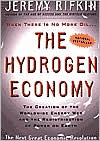 The Hydrogen Economy: The Creation of the Worldwide Energy Web and the Redistribution of Power on Earth
The Hydrogen Economy: The Creation of the Worldwide Energy Web and the Redistribution of Power on Earth
The road to global security," writes Jeremy Rifkin, "lies in lessening our dependence on Middle East oil and making sure that all people on Earth have access to the energy they need to sustain life. Weaning the world off oil and turning it toward hydrogen is a promissory note for a safer world."
Rifkin′s international bestseller The Hydrogen Economy presents the clearest, most comprehensive case for moving ourselves away from the destructive and waning years of the oil era toward a new kind of energy regime. Hydrogen-one of the most abundant substances in the universe-holds the key, Rifkin argues, to a cleaner, safer, and more sustainable world.
Order Here

 VIDEO
VIDEO PROGRAMS
PROGRAMS BOOKS
BOOKS